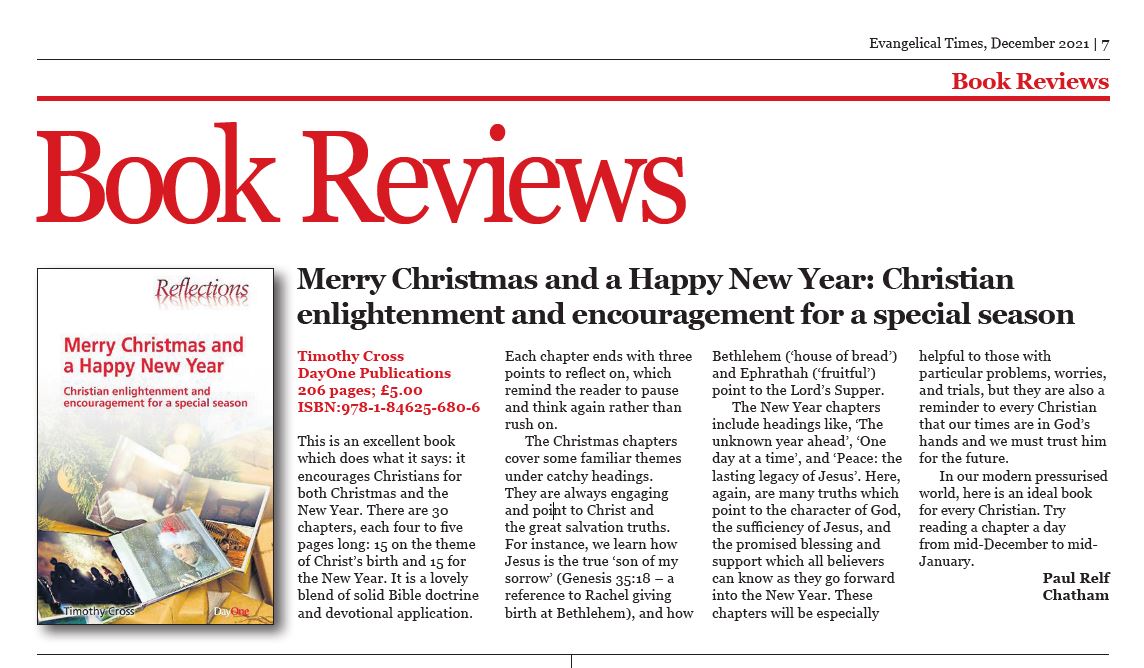THE ONLY SAVIOUR OF SINNERS
When Christ was born, via a virgin birth
The skies were filled with angelic mirth
Who couldn’t give praise, or not be thrilled?
The ancient prophecies were now fulfilled
And central to redemption’s plan
The Son of God was born a man
He came from heaven, to earth to dwell
God with us – Emmanuel
Some shepherds came to see the sight
They paid their homage, that first Christmas night
And wise men too, travelled from afar
Gave gifts to the Christ – guided by His star
The Saviour was reared in a normal family
Living in Nazareth, near the Sea of Galilee
He laboured away in the carpentry trade
From stone and wood, various items He made
His divine identity was largely concealed
Until the time came, to be revealed
Then on one day, to John’s surprise
Jesus came to the Jordan, to be baptised
And the Spirit descended, like a dove
And God the Father, expressed His love
He was in the wilderness for forty days
But to Satan’s wiles, He never gave way
And then He began His public ministry
And with very many miracles, He proved His deity
He turned plain water into wine
He cast out demons – they entered the swine
With just two fish and five loaves of bread
Five thousand plus, were miraculously fed
Peter’s wife’s mother lay sick in bed
But one touch from the Saviour, and the fever fled
Lepers were cleansed, and the dead were raised
Lives were transformed, to the Saviour’s praise
With just a word, He calmed the sea
It all begged the question ‘Who could this be?’
At Caesarea Philippi, He asked this question
‘You’re the Christ of God’ was Peter’s confession
Then furthermore, on Hermon’s height
He was transfigured before them – turning dazzling white
And heaven again spoke, to the disciples’ fear
‘This is My Son – It is He you should hear’
Then some months later, the appointed time drew nigh
For the purpose of His coming – to suffer and to die
On trumped up charges, being unjustly tried
They nailed Him to a Cross: He was crucified
On Calvary’s tree, He shed His precious blood
To reconcile us sinners – to bring us back to God
He bore the sins of others, when He died on that tree
When we put our faith in Jesus, from God’s fearful wrath we’re free
At the moment when a sinner, is enabled to believe
A present, full salvation, is God’s promise to receive
For God’s own Son alone, can make us truly whole
And impart God’s salvation, to the needy, human soul
Christ died, and then His body, was laid in Joseph’s tomb
The disciples locked themselves away, in sorrow, and in gloom
Their hearts were very broken, yet, they were so very wrong
In thinking that their Greatest Friend, was now just dead and gone
For three days later, as He’d said, to them the Christ appeared!
Their sadness now was turned to joy, their souls were greatly cheered
He was alive, as prophesied – now risen from the dead
‘Come touch and handle Me, for real’ were the words to them He said
The Saviour conquered death and the grave
He arose victorious – He’s mighty to save
In Him there’s full salvation, for no money and no price
For all who realise their sin – and trust in Jesus Christ
He commissioned His disciples, He commanded proclamation
The message of salvation is for each and every nation
He ascended on a cloud to heaven – to the glory in the sky
And promised to return one day, in the future, by and by
Yes the sceptics always scoff, and the scornful have their say
But it can’t be refuted that Christ Jesus lives today
Seated there in the Glory now, enthroned at God’s right hand
He’s building up His Church on earth – the saved from every land
God’s purposes will triumph – not by force, and not by sword
But the preaching of the gospel – by the Spirit, through the Word
The church, it needs no gimmicks, it needs no special effects
Through simple gospel preaching, God will save His own elect
The Saviour’s final words to us were ‘I am coming soon’
Yes the trumpet of the Lord shall sound, to this fallen world of gloom
Our broken world needs fixing – Christ alone can make amends
And this will surely happen, when to earth He next descends
His people will dwell with Him, they’ll delight to see His face
And rehearse salvation’s story ‘I’m a sinner saved by grace’
So ensure you’re trusting Christ today, or you will be but lost
Believe in Jesus, while you may – He paid redemption’s cost
His invitation still avails – you still can hear Him say
That ‘Every one who comes to Me, I’ll never turn away.’
Timothy Cross











